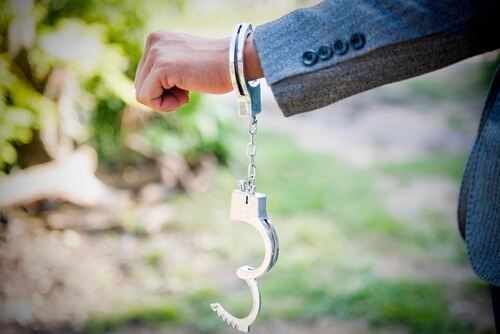If you’re reading this, chances are you’re interested in learning more about the criminal justice system, particularly the role of bounty hunters. It’s also possible you or a loved one is involved in the bail system, and that’s how you’ve found your way to us.
For most of us, a bounty hunter is a sign that things have gone terribly wrong.
While apprehending fugitives who have failed to appear in court or violated other bail terms may seem like a thrilling profession, the reality is that it’s a dangerous and challenging job requiring unique skills and expertise. You can think of each of those as reasons to avoid the situation altogether!
If you make it to every hearing and follow the terms of your bail bond, you won’t need to worry about bounty hunters. But if you’re still intrigued, read on. Let’s talk about Texas bounty hunting to give you a more comprehensive picture of all the parts in motion.
Whether you’re a seasoned bail bond agent, currently out on bail, or just curious about the criminal justice system, we invite you to explore the fascinating world of bounty hunting.
Methods of Texas Bounty Hunting
There are many different methods bounty hunters use to get the job done (No, one of them is not Grogu), and each one requires specific skills and expertise. Here are some of the most common methods used today:
Surveillance
Surveillance is essential, allowing bounty hunters to monitor their target’s activity and track their movements. This can involve various techniques, from traditional stakeouts to high-tech equipment.
A bounty hunter might use a GPS tracker to monitor a target’s vehicle or install cameras around their home to gather evidence of their activities. By keeping a close eye on a target’s behavior, bounty hunters determine the best time and place to make their arrest.
Networking
Bounty hunters rely on their connections in the criminal justice system to gather information about their target: whereabouts, criminal history, and associates. This involves working closely with local law enforcement agencies and tapping into various databases and similar resources to gather intelligence.
For example, they may access court records, police reports, or social media profiles to get more information about their target.
Research
Research is a crucial skill for any bounty hunter, as it allows them to gather information about your background, habits, and behavior. This can mean searching public records or interviewing family members, friends, and associates.
For example, a bounty hunter may research a target’s employment history, financial records, or travel patterns to get insight into their movements and behavior. With this information, they can develop a plan of action to maximize their chance of success.
Negotiation
Negotiation is a delicate skill that requires finesse and diplomacy. Sometimes, a bounty hunter must negotiate with a target or their family members. This can involve convincing them to surrender voluntarily or agreeing on a peaceful resolution to the situation. Successful negotiation requires excellent communication skills, empathy, and the ability to read people’s emotions and motivations.
Force
Physical force is always a last resort for bounty hunters since it involves a significant risk of injury or even death. When all other methods have failed, a bounty hunter may need to use physical force to apprehend their fugitive.
This requires a high level of training in self-defense techniques and the use of non-lethal weapons such as stun guns or pepper spray. Bounty hunters must be prepared to defend themselves against physical attacks and react quickly in high-stress situations.
Risks and Dangers of Texas Bounty Hunting
It’s not all night missions and cool gadgetry, of course. Texas bounty hunting is a dirty game and ugly a lot of the time. Let’s look at some of the actual situations they face.
Physical Danger
Some fugitives can be violent, armed, and/or dangerous. The bounty hunter must be prepared to defend themselves against physical attacks and use self-defense techniques. A fugitive wanted for a violent crime may be more prone to using physical force to evade capture. Bounty hunters may utilize weapons like pepper spray, tasers, or even firearms in such situations.
Additionally, bounty hunters may face environmental hazards like rugged terrain, extreme weather, or wild animals.
A bounty hunter in a rural area could encounter snakes, bears, or other dangerous creatures while tracking a fugitive. They must be trained in self-defense and wilderness safety and have the necessary equipment to stay safe.
Legal Risks
Laws governing bounty hunting vary from state to state, which makes it tricky to navigate. Bounty hunters must be aware of the laws and regulations that apply to their work to avoid facing legal consequences.
In some states, bounty hunting requires a license, while in others, like Texas, bounty hunting does not require a license.
Regardless of licensure laws, bounty hunters must tread carefully and follow all regulations to avoid trouble. If a bounty hunter uses excessive force or violates someone’s civil rights, they face legal action and civil lawsuits.
Uncooperative Fugitives
People often refuse to cooperate with bounty hunters, for example, a non-cooperative fugitive who’s gone into hiding. They might hole up in a remote cabin in the woods, making them difficult to find. A person could also flee to another state, in which case the bounty hunter needs to use their tracking skills and work with law enforcement to find the fugitive.
Family members or associates of the fugitive may also obstruct the bounty hunter’s efforts. They could refuse to divulge information about their whereabouts or even use violence to keep the bounty hunter at bay. Bounty hunters must be prepared for scenarios like these and use their negotiation skills to get the information they need.
Personal Safety
Say a bounty hunter captured a fugitive affiliated with a dangerous criminal organization. The organization might put out a hit on the bounty hunter as retaliation. In such cases, bounty hunters need to be vigilant and take measures to protect themselves and their families. This could include using protective gear, hiring security personnel, or relocating to a safer location.
Moreover, the stress and anxiety that come with the job can’t be underestimated. Bounty hunters may have PTSD or other mental health issues due to their work, which can also adversely affect their personal safety.
1st Call Bail Bonds in Dallas to Get Out of Jail 24/7
Texas Bounty hunting is a challenging and often dangerous profession that requires a unique set of skills and expertise. By understanding their methods, we gain a more profound knowledge of the work bounty hunters do and the risks they take daily. Bounty hunters may work with bail bond agents if individuals fail to carr out the terms or jump bail and run.
If you find yourself or a loved one behind bars, look no further than 1st Call Bail Bonds. We’ll help get you out and hopefully not resort to utilizing the methods of a bounty hunter.


